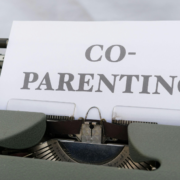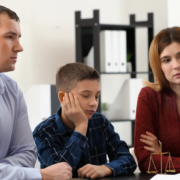Some struggling couples vow to wait until their children have turned 18 to consider divorce. While divorce might be easier on adult children than it is on young ones, it can still be emotionally challenging to come to terms with. Supporting adult children in divorce can help them make sense of this change and understand that your family is still whole, even if relationships and living situations look different.
How Much Say Should Your Adult Children Have in the Divorce Process?
Just like any child, adult children should have very little to do with their parents’ divorce. They may have strong opinions about who should keep what property, where you should live, or who is “right” and “wrong” in the divorce. While you can consider their opinions, do your best to maintain emotional distance and boundaries between the divorce process and your kids.
Just because your children are adults does not mean they should be burdened with the emotional struggles of your divorce. Turn to a therapist for support rather than leaning too heavily on your children, who will already be dealing with enough. Also, be mindful about arguing in front of your children, even if you believe they are emotionally mature enough to handle it.
Supporting Grown Children Through Divorce
Even adults need time to adjust after their parents’ divorce. Your children may be feeling a range of emotions, such as confusion, anger, anxiety, or all of the above. Offer support when your children need it and give them space when they need time to grieve this loss.
Many divorced parents strive to maintain a coordinated front, even in the face of their disagreements, to help children understand that they still have a family. Keep disputes to yourselves and try to maintain a sense of normalcy, however you can. That might mean preserving holiday traditions or keeping the family home, if possible.
Several coping strategies for adult children in divorce can also help. You might talk to your children about practicing self-care, setting clear boundaries with you and their other parent, maintaining good communication, and seeking counseling from a mental health professional if needed.
Adjusting Estate Plans To Account for Adult Children Post-Divorce
One more consideration, if you have adult children, is that their role in your estate plans might change after the divorce. Your ex-spouse will likely no longer be a beneficiary, which means you may want to include provisions for what property your adult children will receive that previously would have gone to your spouse.
Meet with an attorney to ensure that your estate plan reflects your wishes and accounts for parent-child relationships after divorce.
Seek Legal Guidance From Karen Ann Ulmer, P.C.
The impact of divorce on adult children is just one of the many challenges that can arise during this process. Karen Ann Ulmer, P.C., helps clients navigate the complexities of divorce while advocating for their rights. Seek legal guidance with family law, estate planning, and more today by calling (866) 349-4117 for a consultation.










